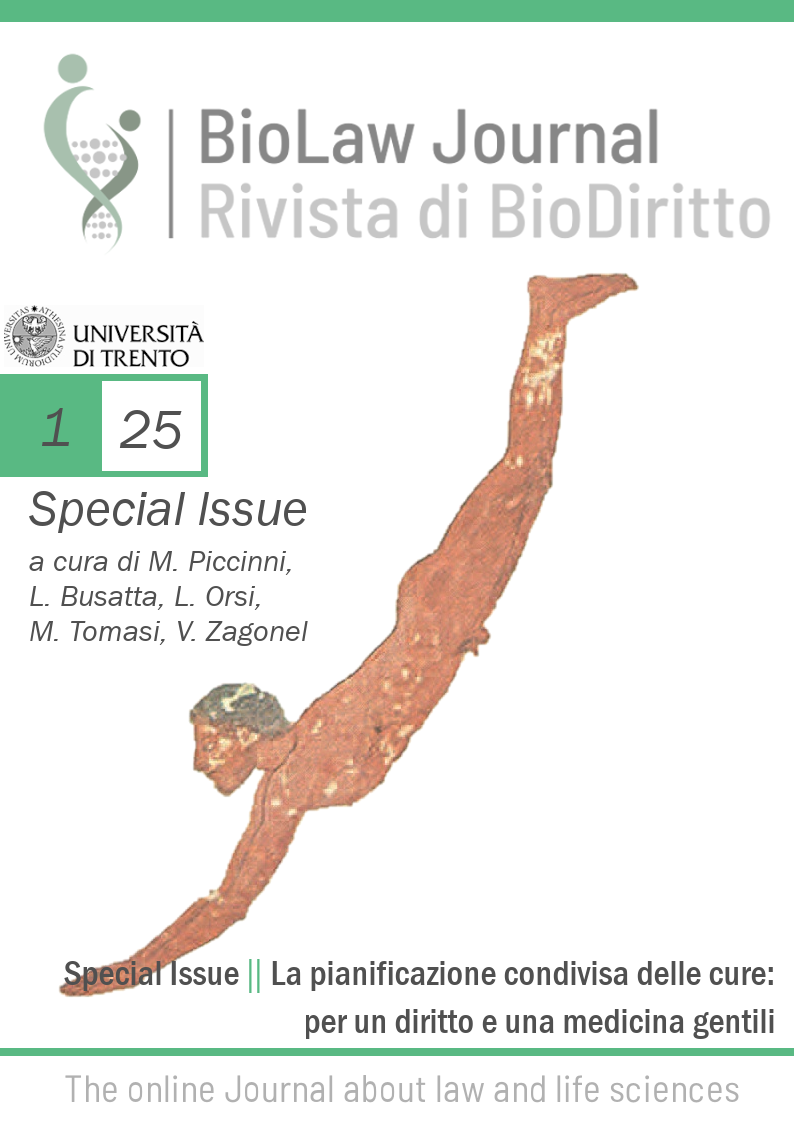Healthcare professionals and shared care planning: opportunities, obstacles, and training needs
DOI:
https://doi.org/10.15168/2284-4503-3399Keywords:
Advance care planning, shared care planning, healthcare professionals, end-of-life care, patient autonomy, communication skillsAbstract
This paper examines the ethical and legal foundations of Shared Care Planning (SCP) in Italy, focusing on its implementation by healthcare professionals, particularly general practitioners and nurses. It argues that SCP, when properly understood and applied, is a powerful tool for providing personalized, patient-centered care that respects human dignity and autonomy. The authors analyze the roles of different healthcare professionals in SCP, highlighting the importance of early identification of palliative care needs and effective communication with patients and families. The paper concludes by emphasizing the need for specific training and organizational strategies to overcome obstacles in implementing SCP and to ensure its widespread adoption in healthcare settings.
Downloads
Published
How to Cite
Issue
Section
License

This work is licensed under a Creative Commons Attribution-NonCommercial-NoDerivatives 4.0 International License.





